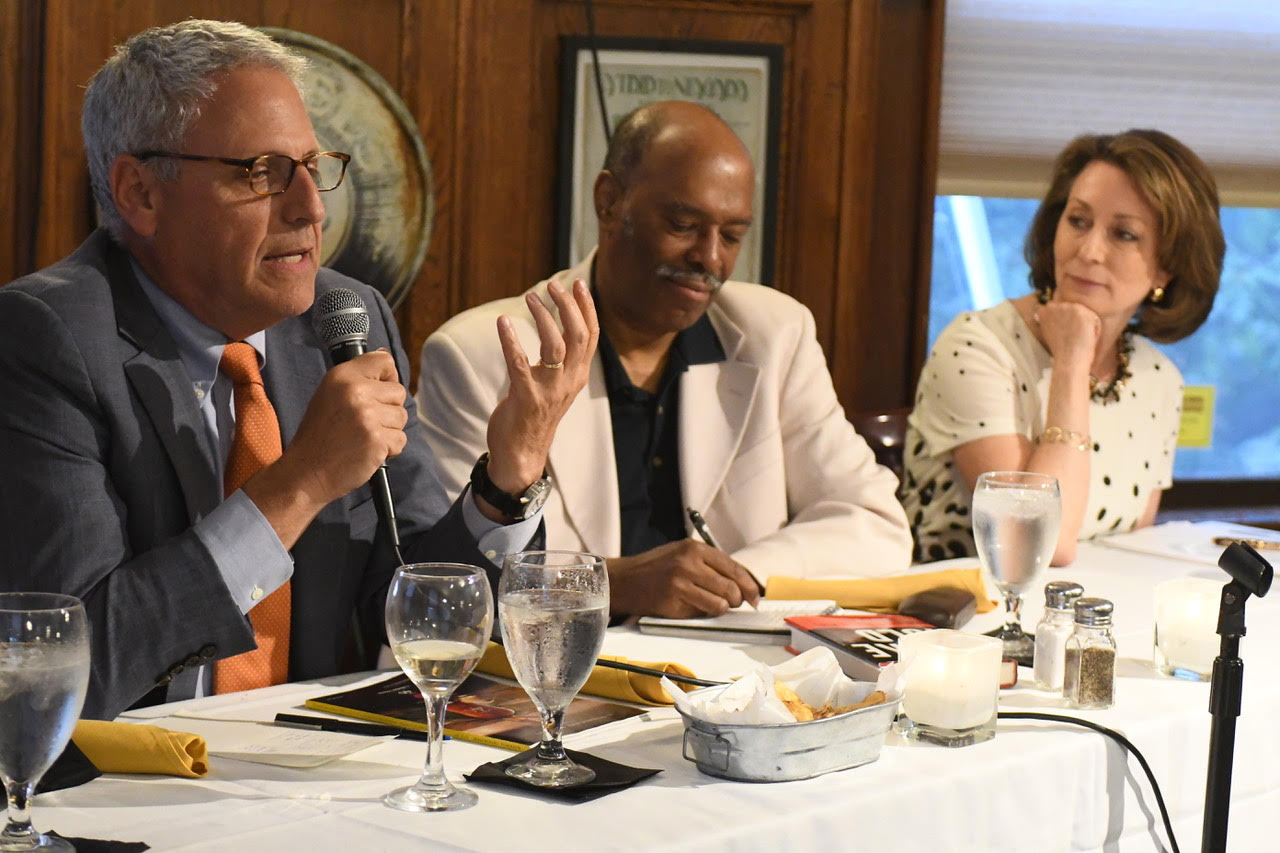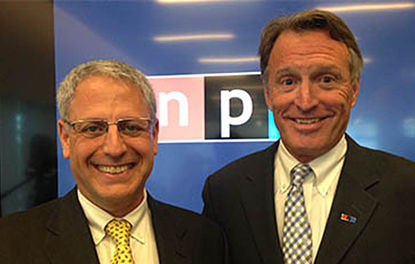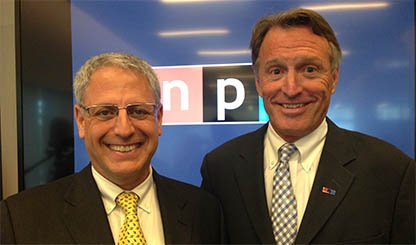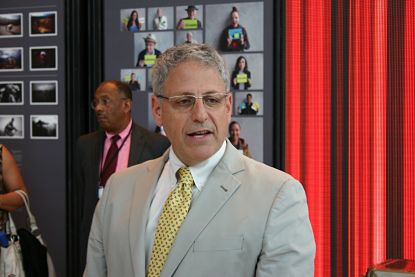Tag: Gary Knell
National Geographic to expand grantmaking to reach more minorities
National Geographic President Gary Knell noted a lack of diversity in race and experience among grantees and said the organization is addressing ...Knell’s departure stalls discussions about expanding NPR’s Code Switch
Talks between NPR and CPB about expanding the network’s Code Switch to a local and regional level are on hold as NPR ...Two-year plan to balance NPR’s budget includes staff reduction
NPR girded for a difficult leadership transition Sept. 13 when its board authorized management to trim the network’s workforce by up to ...NPR Board appoints Haaga as interim chief, announces 10-percent buy-out plan
Paul Haaga, a lawyer and financier who has served as NPR vice chair since last fall, was appointed interim president as the ...Knell’s departure prolongs churn in NPR presidency
The unexpected departure of President Gary Knell puts NPR in the all-too-familiar situation of looking once more for a leader.Gary Knell leaving NPR to become CEO of National Geographic
This item has been updated and reposted with additional information. NPR President Gary Knell has taken a new job as the chief executive ...Underwriting drop leaves NPR with $2.6M shortfall
Facing an operating deficit of $2.6 million this fiscal year due to a shortfall in corporate sponsorship income, NPR is stepping up ...NPR rooted in stations that still require federal dollars
When Gary Knell officially started work this month as NPR’s president, he probably found no shortage of ideas about what he should ...Knell: familiar with dynamics
NPR’s next president already knows how a strong production house can continue to work with pubcasting stations — and also expand its ...Gary Knell, Sesame Workshop c.e.o., hired as NPR president
Gary E. Knell, president and c.e.o. of Sesame Workshop for a decade, will start work Dec. 1 with the same titles at ...








